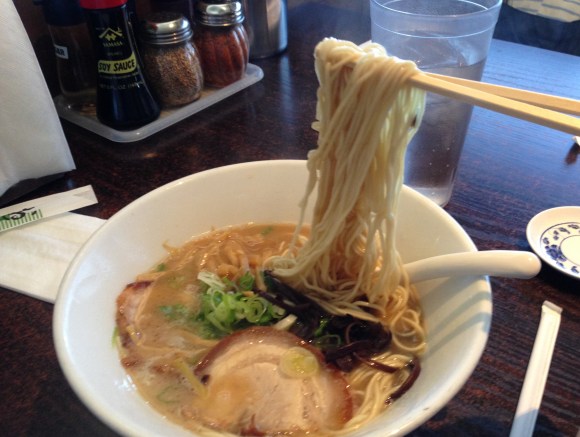
Monta Ramen is a legitimate jackpot of authentic Japanese ramen.
Recently I took a trip back to the States to visit friends and family, and while I was there I took a side trip to Las Vegas. It’d been several years since my last visit, so I checked out the new hotels that had opened up, caught a show, broke even doing some modest gambling, and admired the city’s unmistakable and ever-evolving skyline.
Then I went to get ramen.
That’s not to say I got off the plane from Japan immediately craving Japanese food. But for the past few months, my friend Marcus Lai (from games website Punch Jump) had been gushing about Monta Ramen, located in Las Vegas’ Spring Mountain neighborhood, and I wanted to see how it stacked up against the ramen served in Japan.
We rolled into the parking lot at about 11:15, 15 minutes before the restaurant opens and, for a SoraNews24 writer, way earlier than normal for lunch. As we stood by the door, other customers began lining up behind us, just like at popular ramen joints in Japan, and this gave me a spark of hope that Monta just might serve some seriously good Japanese food.
At 11:30 an employee opened the door, and immediately every seat was filled. Monta’s interior has an L-shaped counter with an open kitchen beyond, as well as tables, and while it’s not especially spacious by American standards, you won’t be bumping elbows with your fellow diners.
But as I took a look at the menu, I felt just a little apprehensive, not because the ramen listed didn’t look or sound good, but because there was so much variety.
In Japan, the most popular ramen restaurants often specialize in one style of ramen, usually one that’s indicative of the local characteristics of the region where the chain is based. Monta, though, has six different kinds of ramen, and I was worried that might translate into a “jack of all flavors, master of none” situation.
Tonkotsu (pork broth) ramen is the first style listed in the menu, and a sign on the wall said it’s also Monta’s most popular (followed by spicy tonkotsu and tonkotsu/soy sauce), so that’s what I opted for. Marcus, without even looking at the menu, asked the waitress for his usual, miso ramen, and when she came back with our bowls, my seesawing expectations rose again.
▼ Tonkotsu ramen
▼ Miso ramen
Without getting too deeply into the history of ramen, tonkotsu is most popular in western Japan, while miso ramen reigns over the country’s north. But in addition to having differently flavored broths, tonkotsu and miso ramen usually use different noodles, with thin, firm noodles being the norm for tonkotsu and thicker, softer ones for miso. And sure enough, Monta follows this tradition.
▼ Tonkotsu noodles
▼ Miso noodles
Finally, after months of anticipation, I took a bite, and discovered that Monta’s tonkotsu ramen is legitimately tasty enough to go toe-to-toe with ramen restaurants in Japan. Richly flavorful but not oily, it works in perfect tandem with the firm, thin noodles, and would be completely satisfying even in the highly competitive restaurantscapes of Tokyo or Fukuoka.
Next up I sampled the miso ramen, which in addition to the marque ingredient also use pork and chicken broth. Sometimes, miso ramen can come off a bit cloying, as the soybean paste has a distinctive flavor that sometimes pushes the other seasonings out of the way. Monta’s miso ramen, though, is extremely balanced, and doesn’t sit as heavily in the mouth or stomach. Hard-core miso lovers might find it a bit mild, but the taste of miso is definitely there, playing nicely with the other sensations on your palate.
Monta was now two for two, and my previous concern about the variety had now become an issue in the opposite way, because now I wanted to try all six broths, but knew I wouldn’t have room for them all (sadly, there’s no ramen sampler/flight). Luckily, my generous wife offered to share some of her tonkotsu shoyu ramen, a multi-faceted mix of pork, chicken, and soy broth. While it doesn’t hit the taste buds with as focused or strong a punch as the standard tonkotsu, its complementary complexity is delicious in its own way, and the sort of thing you might find in a ramen restaurant in Tokyo’s cosmopolitan Ebisu or Hiro districts.
▼ Also available are traditional ramen sides such as gyoza (pot stickers) and fried rice, as well as mini rice bowls topped with chashu pork slices or mentaiko (spicy cod roe).
The restaurant even has a kaedama system, where US$1.50 gets you a refill of noodles added to your leftover broth. And speaking of prices, unlike other overseas restaurants that apply premium pricing to dishes that are inexpensive in their native Japan, Monta’s ramen ranges in price from $6.95 to $7.95, which would be extremely reasonable for Tokyo, Osaka, or any other major Japanese city.
▼ Tonkotsu shoyu ramen
When I have Japanese food in the U.S., I often find myself mentally qualifying my opinion with “This is pretty good, compared to other Japanese restaurants in America,” or “If you can’t get on a plane to Japan, eating here is a pretty good second option.” But with Monta Ramen, I’m happy to just be able to say “It’s great,” even judged against the standard of ramen restaurants in Japan.
Restaurant information
Monta Ramen
Address: 5030 Spring Mountain Rd, Ste 6, Las Vegas, NV 89146
Open 11:30 a.m.-11 p.m. (Sunday-Thursday), 11:30 a.m.-1 a.m. (Friday-Saturday)
Telephone 702-367-4600
Photos ©SoraNews24
Follow Casey on Twitter as he continues to eat Japanese food on both sides of the Pacific.


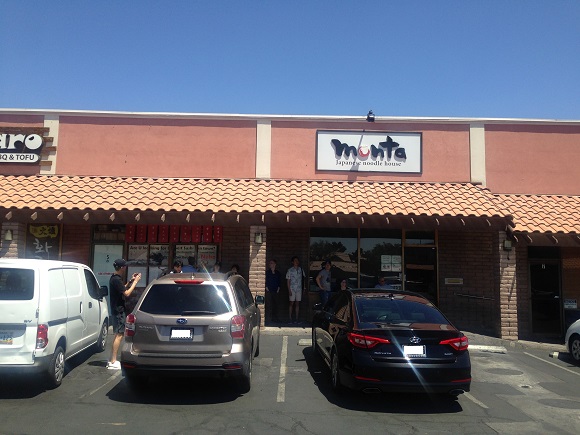
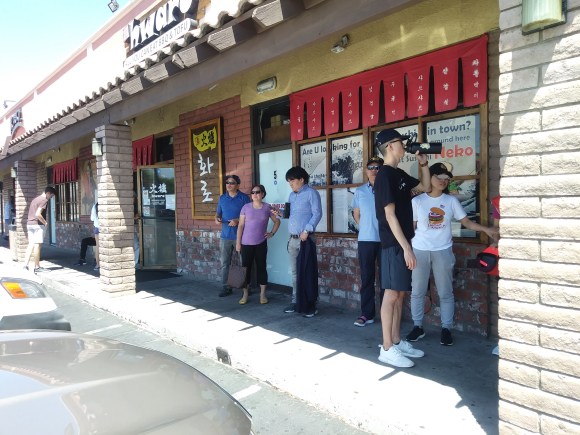
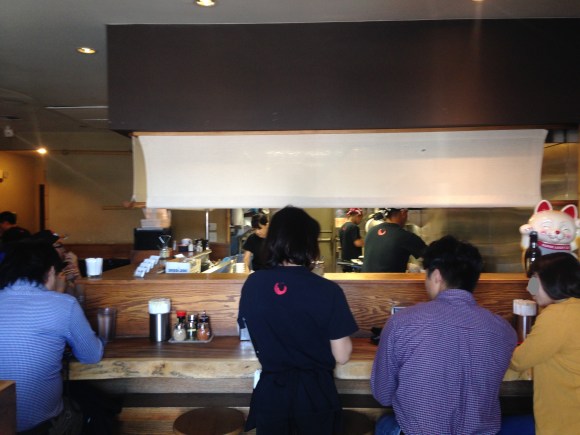
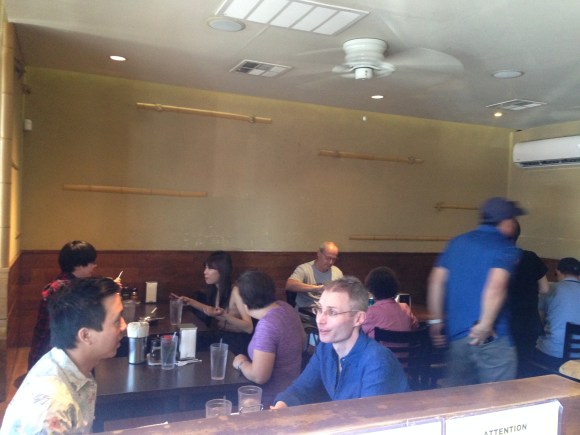
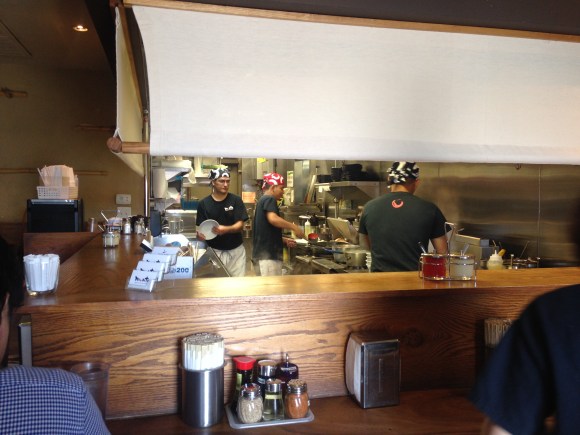
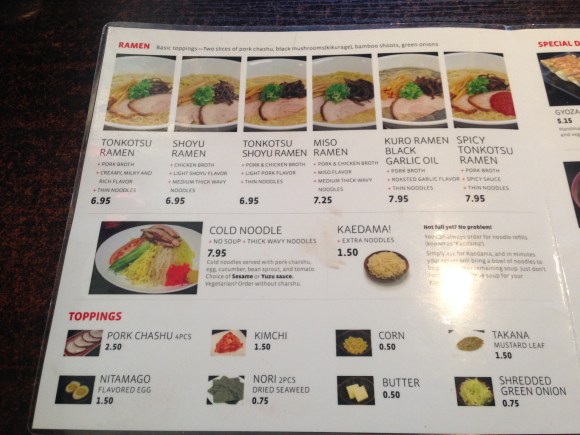
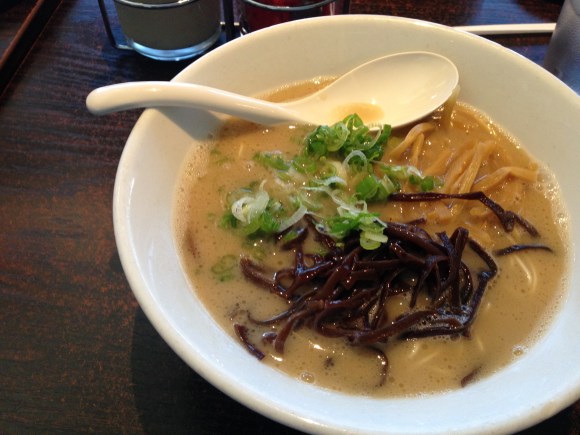
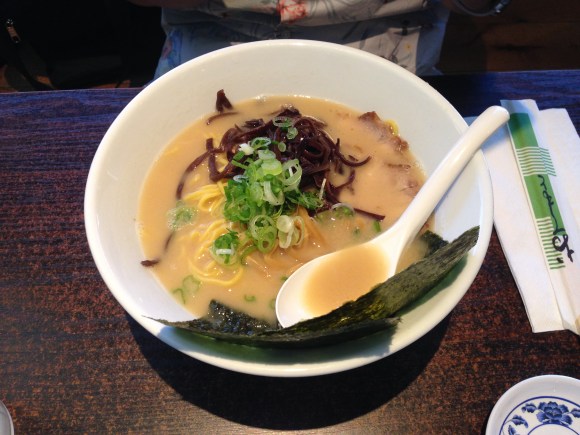
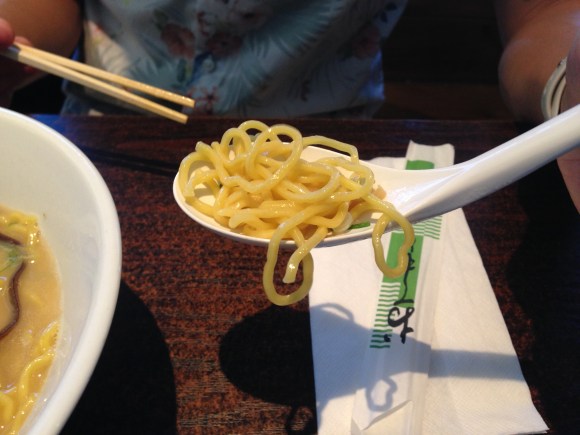
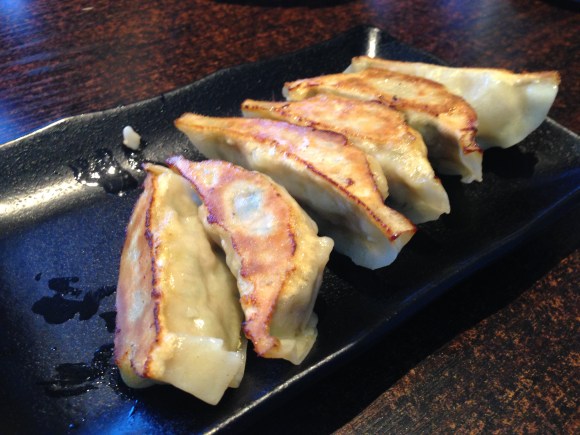
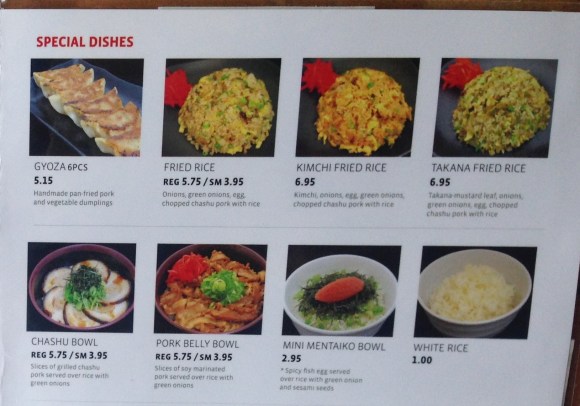
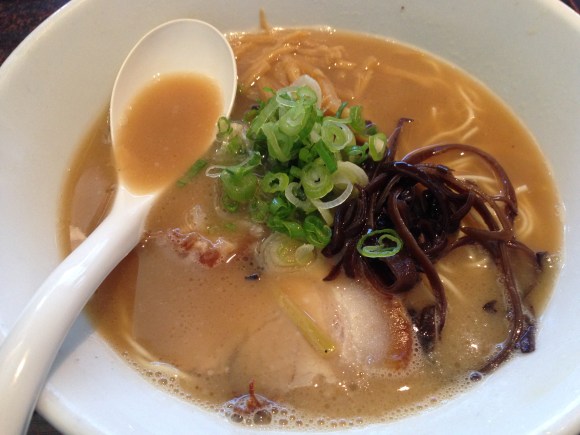
 Yakuzen ramen restaurant in Tokyo is very different to a yakuza ramen restaurant
Yakuzen ramen restaurant in Tokyo is very different to a yakuza ramen restaurant Instant vs. Restaurant Ramen Project: Ippudo spicy miso tonkotsu battle【Taste test】
Instant vs. Restaurant Ramen Project: Ippudo spicy miso tonkotsu battle【Taste test】 Ippudo serves up plant-based tonkotsu ramen in Japan for a limited time
Ippudo serves up plant-based tonkotsu ramen in Japan for a limited time Taste-testing Japan’s murky, mysterious “bathroom ramen”
Taste-testing Japan’s murky, mysterious “bathroom ramen” Poisonous blowfish ramen restaurant in Tokyo is death-defyingly delicious【Taste test】
Poisonous blowfish ramen restaurant in Tokyo is death-defyingly delicious【Taste test】 Japan’s craziest burger chain takes menchi katsu to new extreme levels
Japan’s craziest burger chain takes menchi katsu to new extreme levels Japanese restaurant chain serves Dragon Ball donuts and Senzu Beans this spring
Japanese restaurant chain serves Dragon Ball donuts and Senzu Beans this spring Starbucks Japan releases first-ever Hinamatsuri Girls’ Day Frappuccino
Starbucks Japan releases first-ever Hinamatsuri Girls’ Day Frappuccino Drift ice in Japan is a disappearing winter miracle you need to see now
Drift ice in Japan is a disappearing winter miracle you need to see now Highest Starbucks in Japan set to open this spring in the Tokyo sky
Highest Starbucks in Japan set to open this spring in the Tokyo sky Beautiful blue apple jam is taking the Japanese internet’s breath away!
Beautiful blue apple jam is taking the Japanese internet’s breath away! How to befriend a famous Pokémon Go YouTuber? Challenge them to a Pokémon Pancake battle【Video】
How to befriend a famous Pokémon Go YouTuber? Challenge them to a Pokémon Pancake battle【Video】 Is a snow day the perfect day to beat the crowds at a popular ramen restaurant? [Experiment]
Is a snow day the perfect day to beat the crowds at a popular ramen restaurant? [Experiment] Japan Extreme Budget Travel! A trip from Tokyo to Izumo for just 30,000 yen [Part 2]
Japan Extreme Budget Travel! A trip from Tokyo to Izumo for just 30,000 yen [Part 2] Manga artist and adult filmmaker lists Miyazaki anime among the worst, “most dangerous” out there
Manga artist and adult filmmaker lists Miyazaki anime among the worst, “most dangerous” out there Tokyo Skytree turns pink for the cherry blossom season
Tokyo Skytree turns pink for the cherry blossom season Yakuzen ramen restaurant in Tokyo is very different to a yakuza ramen restaurant
Yakuzen ramen restaurant in Tokyo is very different to a yakuza ramen restaurant Japan Extreme Budget Travel! A trip from Tokyo to Izumo for just 30,000 yen [Part 1]
Japan Extreme Budget Travel! A trip from Tokyo to Izumo for just 30,000 yen [Part 1] Japan has only one airport named after a samurai, so let’s check out Kochi Ryoma【Photos】
Japan has only one airport named after a samurai, so let’s check out Kochi Ryoma【Photos】 Japanese drugstore sells onigiri at pre-stupid era prices, but how do they compare to 7-Eleven?
Japanese drugstore sells onigiri at pre-stupid era prices, but how do they compare to 7-Eleven? Burning through cash just to throw things away tops list of headaches when moving house in Japan
Burning through cash just to throw things away tops list of headaches when moving house in Japan Starbucks Japan releases new sakura goods and drinkware for cherry blossom season 2026
Starbucks Japan releases new sakura goods and drinkware for cherry blossom season 2026 Japan’s newest Shinkansen has no seats…or passengers [Video]
Japan’s newest Shinkansen has no seats…or passengers [Video] Foreigners accounting for over 80 percent of off-course skiers needing rescue in Japan’s Hokkaido
Foreigners accounting for over 80 percent of off-course skiers needing rescue in Japan’s Hokkaido Super-salty pizza sends six kids to the hospital in Japan, linguistics blamed
Super-salty pizza sends six kids to the hospital in Japan, linguistics blamed Starbucks Japan unveils new sakura Frappuccino for cherry blossom season 2026
Starbucks Japan unveils new sakura Frappuccino for cherry blossom season 2026 Foreign tourists in Japan will get free Shinkansen tickets to promote regional tourism
Foreign tourists in Japan will get free Shinkansen tickets to promote regional tourism The 10 most annoying things foreign tourists do on Japanese trains, according to locals
The 10 most annoying things foreign tourists do on Japanese trains, according to locals Take a trip to Japan’s Dododo Land, the most irritating place on Earth
Take a trip to Japan’s Dododo Land, the most irritating place on Earth Naruto and Converse team up for new line of shinobi sneakers[Photos]
Naruto and Converse team up for new line of shinobi sneakers[Photos] Is China’s don’t-go-to-Japan warning affecting the lines at a popular Tokyo gyukatsu restaurant?
Is China’s don’t-go-to-Japan warning affecting the lines at a popular Tokyo gyukatsu restaurant? Survey asks foreign tourists what bothered them in Japan, more than half gave same answer
Survey asks foreign tourists what bothered them in Japan, more than half gave same answer Japan’s human washing machines will go on sale to general public, demos to be held in Tokyo
Japan’s human washing machines will go on sale to general public, demos to be held in Tokyo Starbucks Japan releases new drinkware and goods for Valentine’s Day
Starbucks Japan releases new drinkware and goods for Valentine’s Day We deeply regret going into this tunnel on our walk in the mountains of Japan
We deeply regret going into this tunnel on our walk in the mountains of Japan Studio Ghibli releases Kodama forest spirits from Princess Mononoke to light up your home
Studio Ghibli releases Kodama forest spirits from Princess Mononoke to light up your home Major Japanese hotel chain says reservations via overseas booking sites may not be valid
Major Japanese hotel chain says reservations via overseas booking sites may not be valid Put sesame oil in your coffee? Japanese maker says it’s the best way to start your day【Taste test】
Put sesame oil in your coffee? Japanese maker says it’s the best way to start your day【Taste test】 No more using real katana for tourism activities, Japan’s National Police Agency says
No more using real katana for tourism activities, Japan’s National Police Agency says Osaka restaurant has ramen for those who like it spicy, cold, sweet, hot, creamy, salty and meaty
Osaka restaurant has ramen for those who like it spicy, cold, sweet, hot, creamy, salty and meaty This London ramen restaurant’s super-strange ramen shocks our Japanese taste-tester
This London ramen restaurant’s super-strange ramen shocks our Japanese taste-tester Does Ippudo’s new plant-based tonkotsu ramen really taste like pork?
Does Ippudo’s new plant-based tonkotsu ramen really taste like pork? Clear tonkotsu ramen becomes a cult hit at “Ramen Runway” in Japan
Clear tonkotsu ramen becomes a cult hit at “Ramen Runway” in Japan Does Harajuku’s ramen restaurant with a constant line live up to the hype? Let’s find out!
Does Harajuku’s ramen restaurant with a constant line live up to the hype? Let’s find out! A visit to the real-life Naruto Ramen Ichiraku anime restaurant that’s not in Japan【Photos】
A visit to the real-life Naruto Ramen Ichiraku anime restaurant that’s not in Japan【Photos】 Akihabara ramen restaurant becomes a hit with foreign tourists
Akihabara ramen restaurant becomes a hit with foreign tourists We found a popular Japanese ramen chain in South Korea!…or so we thought
We found a popular Japanese ramen chain in South Korea!…or so we thought We visit the Paris branch of Japanese ramen chain Ippudo and eat the most unusual ramen
We visit the Paris branch of Japanese ramen chain Ippudo and eat the most unusual ramen Ramen made by a sauna shop opens its doors in Tokyo
Ramen made by a sauna shop opens its doors in Tokyo How to make tonkotsu ramen at home 【SoraKitchen】
How to make tonkotsu ramen at home 【SoraKitchen】 Skip Tsukiji sushi?!? This seafood-stock ramen restaurant is a great reason to do just that
Skip Tsukiji sushi?!? This seafood-stock ramen restaurant is a great reason to do just that Instant vs. Restaurant Ramen Project: Moko Tanmen Nakamoto deliciously spicy miso【Taste Test】
Instant vs. Restaurant Ramen Project: Moko Tanmen Nakamoto deliciously spicy miso【Taste Test】 Ichiran Ramen’s delicious new product: Fried tonkotsu noodles!
Ichiran Ramen’s delicious new product: Fried tonkotsu noodles! Japanese ramen cocktail uses tonkotsu pork broth for alcoholic noodle flavour
Japanese ramen cocktail uses tonkotsu pork broth for alcoholic noodle flavour